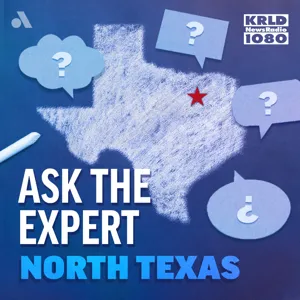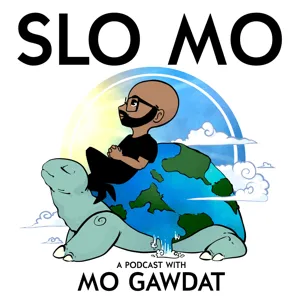Michelle Mone and the PPE Medpro investigation

Explore " coronavirus" with insightful episodes like "Michelle Mone and the PPE Medpro investigation", "What can we do to keep the viruses away from us?", "Boris Johnson v the Covid inquiry", "The Covid inquiry | Politics Weekly UK" and "What we’ve learned so far from the Covid inquiry" from podcasts like ""Today in Focus", "Ask the Expert North Texas", "Today in Focus", "Politics Weekly UK" and "Today in Focus"" and more!


This is the cold and flu and COVID and RSV season. There are so many different kinds of bugs and viruses that can fill our homes and offices at any time. And cases are rising in just about all of them.
But, we just finished a time when we met with our friends and families in close quarters for the holidays. That can only make things worse.
There are ways to protect yourself, beyond just washing your hands all the time. You can make sure your environment is cleaner.
On today's Ask The Expert, Brant Insero joined us. He's the Chief Global Education Officer for ISSA, the International Sanitary Supply Association.
Image: CreativeDesignArt/GettyImages







A recent headline we can't seem to US Energy Department assesses Covid-19 likely resulted from lab leak, furthering US intel divide over virus origin.
On Ask the Expert, Dr Ben Neuman joined the KRLD Afternoon News. He is a Virologist and Professor at Texas A&M University.
Photo credits: Getty Images

As of this week, just about all Americans are now eligible to get the vaccine against COVID. The FDA and the CDC both approved the last group to receive either the Pfizer or the Moderna vaccine which is children under the age of 6.
Now, the questions begin will parents take the time to get their youngest children vaccinated?
On today's Ask The Expert, Dr. Tim Bray joined us. He's the Director of UTD’s Institute for Urban Policy Research

How do diseases and information spread? On this episode, Neil deGrasse Tyson and comic co-host Chuck Nice discover the history of pandemics, how social networks impact spread, and the hidden math behind it with sociologist Nicholas Christakis.
NOTE: StarTalk+ Patrons can watch or listen to this entire episode commercial-free here: https://www.startalkradio.net/show/social-networks-and-ending-the-pandemic-with-nicholas-christakis/
Thanks to our Patrons Stephanie Nina Pitsirilos, bj Avent-Farmer, Bryce Irving, Heavily Sedated, Aaron Moss, Rudy Amaya, and Jan Erik Bergli for supporting us this week.

What is the Omicron Variant? On this episode, Neil deGrasse Tyson and comic co-host Chuck Nice discuss the emergence of the new Omicron Variant of COVID-19 with biomedical scientist and president of Regeneron, George Yancopoulos.
NOTE: StarTalk+ Patrons can watch or listen to this entire episode commercial-free here: https://www.startalkradio.net/show/the-omicron-variant-with-president-of-regeneron-george-yancopoulos/
Thanks to our Patrons Vincent Krohn, Eu, Valeritte (Chuck, just call me Val), Austin McCauley, Avneesh Joshi, Timothy Lew, and Nikki Amberg for supporting us this week.
Photo Credit: Linda Bartlett (Photographer), Public domain, via Wikimedia Commons

The observer effect? Rotating bodies? The science of rocket fuel? On this episode, Neil deGrasse Tyson and co-hosts Gary O’Reilly and Chuck Nice answer science questions from our favorite pro athletes: Jerry Rice, Lindsey Vonn, Eli Manning, and more!
NOTE: StarTalk+ Patrons can watch or listen to this entire episode commercial-free.
Thanks to our Patrons Ken Abe, Al Long, Chloe Rudel-Holland, Sara, Rafał Żak, Alexander Whisnant, and Galactic Raven for supporting us this week.
Photo Credit: NASA/Bill Ingalls, Public domain, via Wikimedia Commons

What’s up with the COVID-19 vaccines? On this episode of StarTalk, Neil deGrasse Tyson and comic co-host Chuck Nice talk about all things COVID-19 vaccine with Dr. Irwin Redlener, Director of the National Center for Disaster Preparedness.
NOTE: StarTalk+ Patrons can listen to this entire episode commercial-free here: https://www.startalkradio.net/show/the-covid-19-vaccines-with-irwin-redlener/
Thanks to our Patrons Joe Selmser, Daniel Smith, C Hough, Sheri Eaton, Jon O'Rear, Jennifer Sell-Knapp, Catherine Nelson, Wesley Karl Trevenzoli, Carl Simmons, and Chris Reynolds for supporting us this week.
Photo Credit: Army Spc. Angel Laureano holds a vial of the COVID-19 vaccine. Credit: DoD photo by Lisa Ferdinando – U.S. Secretary of Defense, CC BY 2.0, via Wikimedia Commons

This is Part 2 of the chat between myself and my own brain, Becky.
For those who know me well, you know I call my brain Becky. Becky is a retired control freak, tends to be obsessive, sees the negative in everything and loves to be vocal about it. I decided to free flow a year in review with Becky, focusing on the positive.
Thank you to our listeners and guests for an incredible year. There's so much more Slo Mo to come. I love you all for listening.
In Part 2, (we) discuss:
YouTube: @mogawdatofficial
Instagram: @mo_gawdat
Facebook: @mo.gawdat.official
LinkedIn: /in/mogawdat
X: @mgawdat
Website: mogawdat.com
Don't forget to subscribe to Slo Mo for new episodes every Saturday. Only with your help can we reach One Billion Happy #onebillionhappy

Today's guest is Becky.
For those who know me well, you know I call my brain Becky. Becky is a retired control freak, tends to be obsessive, sees the negative in everything and loves to be vocal about it.
A couple of weeks ago, she asked if she could be my guest on Slo Mo to talk with me about this exceptional year, 2020, in review. I had to oblige, as I've revamped my relationship with her throughout the years and owed her at least this.
And before we dive in, I want to say it's been one of the greatest and most fulfilling pleasures of my life and career to host this podcast. There's so much more Slo Mo to come, and I love you all for listening.
In Part 1, listen as I (we) discuss:
Instagram: @mo_gawdat
Facebook: @mo.gawdat.official
Twitter: @mgawdat
LinkedIn: /in/mogawdat
Don't forget to subscribe to Slo Mo for new episodes every Sunday and Thursday. Only with your help can we reach One Billion Happy #onebillionhappy.
See you next year!
YouTube: @mogawdatofficial
Instagram: @mo_gawdat
Facebook: @mo.gawdat.official
LinkedIn: /in/mogawdat
X: @mgawdat
Website: mogawdat.com
Don't forget to subscribe to Slo Mo for new episodes every Saturday. Only with your help can we reach One Billion Happy #onebillionhappy

In this special episode of Bio Eats World -- which aired right after the FDA authorized Moderna's mRNA vaccine for emergency use -- Moderna CEO Stephane Bancel tells the story of not just the vaccine’s development, but the machine that made the vaccine: the platform, the technology, and the moves behind the vaccine’s development.
How does this new technology that uses mRNA work; why is this such a fundamental shift in the world of drug development; and where will this technology go next?
https://a16z.com/2020/12/18/moderna-covid-vaccine-mrna-technology/

A vaccine for COVID seems to be (almost) here… or is it? What’s hype/ what’s real beyond the headlines (and beyond the press release), when it comes to the announcement last week from Pfizer and BioNTech that their vaccine candidate was found to be more than 90% effective in preventing COVID-19 -- and relatedly, the most recent news around Moderna's vaccine candidate?
Of course, this was just the first interim efficacy analysis — so how close or far are we? What’s the significance of the readout and case numbers? How do we put all this in context of all the other (458!) programs in development? And how much should/ shouldn’t we read into the news, given the buzzy excitement and penchant for evaluating "science via press release"? a16z bio general partners Vineeta Agarwala and Jorge Conde recently broke it all down in conversation with Sonal Chokshi on our show 16 Minutes: the math, the science, and the practical considerations — from “vaccine efficacy” vs. efficiency, from cold chains to distribution, from patients to the system… as well as why mRNA matters in the present future of vaccines.

How has COVID-19 impacted athletes? Neil deGrasse Tyson and co-hosts Gary O’Reilly and Chuck Nice investigate with cardiovascular disease specialist Dr. Saurabh Rajpal, MD, and Head Team Physician Dr. James Borchers, MD, of The Ohio State University.
NOTE: StarTalk+ Patrons can watch or listen to this entire episode commercial-free here: https://www.startalkradio.net/show/the-science-of-the-covid-bubble/
Photo Credit: Maize & Blue Nation, CC BY 2.0, via Wikimedia Commons.

This episode examines the potential for misuse and fraud among those applying for the Paycheck Protection Program (PPP)—and how fintech and software provide overlooked tools to stop it.
On March 27th, the government enacted a $2.2 trillion dollar stimulus package called the CARES Act, the largest aid measure in history. The act provides more than $500 billion for the Paycheck Protection Program, or PPP, a low-interest, forgivable loan program designed to help small businesses and self-employed individuals retain workers and stay afloat during the pandemic. Since March, the Small Business Administration has approved billions of dollars in PPP loans. But it is also estimated that U.S. losses from coronavirus-related fraud and identity theft have reached almost $100 million. According to the New York Times, the Small Business Administration’s fraud hotline has received 42,000 reports about coronavirus-related cheating and misuse; by comparison, last year it had less than 800.
To date, the Department of Justice has charged more than 40 cases of PPP-related schemes, from claiming non-existent employees or non-existent businesses to identity theft, kickback schemes, fake tax documents, and multi-state fraud rings. Most of those cases have alleged fraud of more than a $1 million. But what about the countless others that may be cheating taxpayers out of smaller—but not insignificant—sums? How does the government decide who should get money and who shouldn’t among millions of applications from businesses of all industries and sizes—and what role do banks play? How does the program then distribute that money quickly and accurately—or not, in many cases? And what tools are at our disposal to catch those who cheat the system?
Host Lauren Murrow is joined by Bharat Ramamurti, the original member of the COVID-19 Congressional Oversight Commission, which is tasked with evaluating the impact of coronavirus relief loans; Naftali Harris, the CEO of SentiLink, a software company that builds technology to detect synthetic fraud; and a16z fintech general partner Alex Rampell.
Stay up to date
For any inquiries, please email us at hello@podcastworld.io